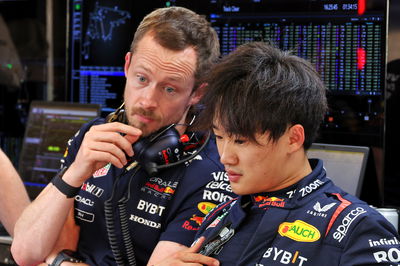McLaren 'serious' about CFD, but it's 'a risk too far' just yet
McLaren-Mercedes is 'serious' about CFD and recognises it as a 'vital' complement to the wind tunnel in F1, concedes Jonathan Neale - but for now, the Woking-based outfit reckons that to completely replace the more traditional aerodynamic approach with the newer, somewhat more unconventional doctrine would be 'a risk too far'.
Currently, the paddock's greatest advocate of CFD (Computational Fluid Dynamics) is Virgin Racing technical director Nick Wirth, with last year's VR-01 and this season's MVR-02 both having been designed solely by computer, with not a wind tunnel in sight.
McLaren Racing managing director Neale describes his fellow Englishman's standpoint on CFD as more of a 'fundamentalist' one, and whilst admitting that the multiple world championship-winning operation does believe in the pioneering technology - revealing that the team relies on roughly a 50/50 CFD/wind tunnel split at present - he insists the time for total transition has not arrived just yet.
"We are serious about our CFD," he stressed, speaking during a special pre-season media day at the McLaren Technology Centre. "It's vital and will continue to be really important to us, but we are still wind tunnel junkies and not willing to give that up at the moment.
"It's a conversation we have frequently every two-to-three years. What's the role of CFD? How do we use it? Is there going to come a point where we retire the wind tunnel? We don't think we are there yet - there's still a use for the wind tunnel.
"Unless you've got prolific, real track data from the car, building [scale] models is quite difficult. We don't think we are at the stage yet where we can get the maths right with CFD to such a level to give us that confidence. We are in the business of taking risks, but for us at the moment, that would be a risk too far."
Neale went on to speak about the new rear wing for F1 2011 - that he underlines will only serve as an aid to overtaking if the pursuing driver has a grippy piece of tarmac onto which to pull out - and the contentious Resource Restriction Agreement (RRA) that he acknowledges has been 'a compromise for lots of teams, and certainly for the top three'.
The 48-year-old also agreed with McLaren team principal Martin Whitmarsh that the sport needs to better promote itself and alter its image for those on the outside looking in, reasoning that F1 has 'a fantastic story' to tell made up of some 'phenomenal' goings-on behind-the-scenes, that it has not traditionally publicised particularly well [see separate story - click here].
"I think we have the ability to be more open and provide more access to people who can't follow us around the globe," he reflected. "I think there's a really exciting technology story there to be told, that doesn't detract from the gladiatorial action out on-track.
"Fans love the drivers, the political angst, the technical side - F1 is a phenomenal Rubik's Cube - but to keep that kind of reach, we have to remain relevant. We can't ignore the environmental aspect - we've got to bring the sport in-line with the contemporary automotive industry. We don't [make changes] for purely altruistic or philanthropic reasons - we do it out of necessity. If you're not relevant, you're dead."











